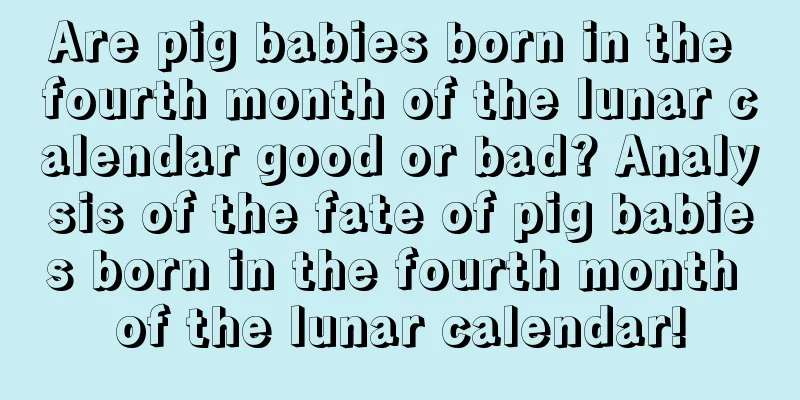The second day of the second month of the lunar calendar is the "Selling Body Festival". Have you ever heard of this festival?

Introduction: Did you know that in some places the second day of the second month of the lunar calendar is called "Selling Body Day"? This kind of selling oneself is not the same as that kind of selling oneself. This festival also has a very beautiful legend. Why is the second day of the second month in the lunar calendar called the Selling Body Festival? Next, let’s learn about it together! February is such a beautiful month, when everything comes back to life and welcomes spring. Let us have a deeper understanding of every detail of the second month of the lunar calendar.The second day of the second lunar month: the Body Selling FestivalA festival in Dongkeng Town, Dongguan City, Guangdong Province, originated in the late Ming and early Qing dynasties.The beautiful legend and history of Dongkeng's "February 2nd Day of Selling Body Festival" are enough to explain that the reason why Dongkeng formed this unique festival of "February 2nd Day of the Lunar Month" is because Dongkeng has a glorious "farming era". In Dongkeng, "Lu Family Land and Xie Family Field" are famous. Connecting to the banks of the Hanxi River, the small Qinghe River was uniquely positioned to become a major transportation artery running through the provincial capital at that time. Cargo ships from Guangzhou, Dongguan, Shilong, Huizhou and other places often arrive at Dongkeng. The Tangdun market on Dongkeng Mashi Street has become a transit point for agricultural and sideline products and daily necessities. Sericulture, sugar processing, rice processing, and oil pressing have emerged one after another. Especially after the summer harvest and planting, there are cricket huts on both sides of the river where crickets are fought. Its gambling houses, opium dens and brothels flourished, and Cantonese opera stars from the province and Hong Kong would come to the busy streets of Dongkeng, singing and dancing, with bright lights and feasting, and people called it "Little Macau". The specific transportation environment and specific farming needs have composed an ode to "The Second Day of the Second Month". The Origin of the Second Day of the Second Lunar MonthThe legend goes that the "Selling Body Festival" originated from Tangchun Village in Dongkeng. There was a wealthy family named Lu who was in a hurry to start farming before Qingming Festival. On the second day of the second month of the lunar calendar, they posted a notice in front of Tangchun Village to hire farm workers. From then on, it became a custom that young and middle-aged men without land would sit on the fence in front of Tangchun Village on the second day of the second lunar month, wearing a bamboo hat and a coarse cloth to show that they were "selling themselves" and selling their labor, waiting to be hired by rich men. On this day, wealthy landowners would go to Tangchun Village to select young and middle-aged men and cattle herders to "sell themselves". They would hire them for a year. This was called "selling oneself".Afterwards, many stories of “encountering immortals” spread in this precious land of outstanding people and beautiful scenery: it was said that an immortal from heaven came down to earth on that day, went to Dongkeng to watch the “selling of bodies” and do good deeds to save all living beings. For example: "Bent Mill Arm", "Straight Fishhook", "Golden Hoe", "The Story of "Dongzai", "Sugar Will Not Be Thrown Out", and "If It's Cloudy for Continuous Days, the Sky Will Be Partly Clear". It is so magical that some people also call the "Selling Body Festival" the "Meeting the Immortals Festival". The more the story spread, the more magical it became. So, on the second day of the second lunar month, the banks of the creek and both sides of the wooden bridge were crowded with people, and merchants from far and near gathered in Dongkeng. People from far away, such as Sheng, Fo, Chen and Long, came by boat; people from nearby villages came on foot, saying that they wanted to meet the immortals. It was truly an unprecedented event. When leaving, everyone has to buy an item to take back with them, to show that they have met an immortal and to bring back good luck. Since the Ming and Qing Dynasties, it has continued to this day. After several vicissitudes, the "Second Day of the Second Month" in Dongkeng was called "Selling Body Festival", also known as "Meeting Fairies Festival", and later changed to "Turning Over Festival". In recent years, it has been renamed "Happy Festival". Visitors love to shoot water with toy water guns on the streets for fun, so it is also called "Water Shooting Festival". People who come to celebrate the Happy Festival on the second day of the second lunar month hope that on this day, the water from the Dongkeng will sprinkle them with good luck and bring them back with good fortune. Food customs on the second day of the second lunar monthEating noodles On the second day of the second month, most farmers eat "gujue" (hand-rolled noodles), commonly known as "dingmengun". Why eat "Gujue"? Some people say that if you eat a "door-holding stick", the door will be blocked and evil spirits will not enter, and there will be peace for the whole year. Some people say that during the Spring Festival everyone is bored with eating and playing, so they have a meal of "Gujue" to refresh themselves, and then start to work and live their lives. Some people also eat jiaotuan on the second day of the second lunar month, saying that it can scale the dragon and trim its armor, so that the dragon will be invigorated and rise to heaven to bring rain. There are a few folk songs satirizing lazy women, which say, "After the 23rd day of the first lunar month, the lazy women are so worried that they don't know where to hide. They want to go to the sky, but they have no shoes to wear; they want to burrow into the ground, but they have no plowshares; they want to hang themselves, but they can't give up the oil-fried dumplings on the second day of the second lunar month." There is also a local custom of frying beans on this day. The folk song says, "On the second day of the second lunar month, the dragon raises its head and beans pop in every pot. The dragon king is awakened and rises early, so that clouds and rain can be sent to ensure a good harvest." Some people also burn incense and kowtow in the nearby Medicine King Temple to pray for safety.Shave the Dragon's Head "On the second day of the second month, shave the dragon's head". The hair that has been kept for the first month of the first lunar month can finally be cut off, and it can also bring good luck. On this day, the busiest places are the barbershops of all sizes on the streets and alleys, which are crowded with people from morning to night. Adults and children lined up to cut off the cold and heavy winter and welcome the refreshing and bright spring. In terms of diet, there is a tradition in the north of China of "gnawing pig's head on the second day of the second month". The pig's trotters and pig's head prepared before the New Year must be taken out and cleaned at this time. The pig hair must be burned off with fire, the dirt must be scraped off with a knife, the huge pig's head must be separated, and soaked in a large basin together with the pig's trotters for two days, waiting to be stewed in a large iron pot on the second day of the second month and then enjoyed. Amid the pervasive aroma, we once used our hands covered in lard to search for the pair of bones in the pig's head that were as light and beautiful as swallows, as well as the toy in the pig's trotter that brought us endless laughter - Galaha. Wearing the Dragon's Tail There is another custom on the second day of the second lunar month for children, called "wearing the dragon's tail", which is rarely seen nowadays. But the scene of my grandma putting a dragon tail on me is still vivid in my mind. On the second day of the second lunar month, grandma would take out the colorful cloth she had saved, cut it into coin-sized circles, and then use chopped sorghum shoots to connect the colorful pieces of cloth together, and tie colorful strips at the end. The finished dragon tail was tied to our shoulders, and children of all ages ran around in the crisp air of early spring. The colorful tassels fluttered in the wind, and we were so high in spirits that we looked like swimming dragons. The second day of the second month of the lunar calendar is the day in the year when we are closest to the dragon. Through the rich and colorful customs, people continue the dragon's bloodline and inherit the dragon's spirit. At the same time, we use this way to appreciate the selfless gifts of nature and hope for a better future. Legend of Fried Corn Dragon Introduction Fried Corn: According to legend, the tradition of frying corn on February 2 every year is to commemorate Yilong who was willing to offend the heavenly law to relieve the suffering of drought on earth. Legend has it that the Jade Dragon could not bear to see the people suffer from drought, so he helped them bring rain and was imprisoned by the Jade Emperor. The Jade Emperor then set a rule that he would only be released when the golden beans bloomed. The people gathered together to fry corn out of gratitude for Yulong's righteous act. Because it looked like golden beans blooming, Taibai Jinxing, who was guarding it, made a mistake and released Yulong. The tradition of frying corn on the second day of the second lunar month has been preserved. Walking here with awe and gratitude, the ice and snow melt, the hibernating insects begin to stir, and the new year arrives with the awakening of spring. Summary: After reading the introduction in the above article, we know the specific meaning and festival culture of the Selling Body Festival. After reading it, do you think that our festival culture is very profound? You have finished reading this article. For more exciting content, please check out the special topic of the second month of the lunar calendar! |
Recommend
Is March 25th of the lunar calendar in 2020 an auspicious day? Can I sign the contract?
It is also necessary to choose a good time to sign...
Is the first day of the first lunar month in 2021 suitable for engagement? Why is the first day of the first lunar month called Yuanshuo?
Introduction: It is generally necessary to choose ...
Is the second day of the fourth lunar month in 2019 a good day for the beginning of summer? What should we pay attention to?
Introduction: The Beginning of Summer is one of th...
Is it a good idea to get married on the 15th day of the eighth lunar month in 2018?
Want to know more about the dates in the eighth m...
Is the 24th day of the 12th lunar month in 2019 a suitable time to pray for a child?
Is the 24th day of the 12th lunar month in 2019 a ...
What day is the sixth day of the third lunar month in 2019? What month and date is it?
March is also called the Oriole Month. It is name...
Is it appropriate to hold a funeral on the fourth day of the tenth lunar month in 2020?
Is it appropriate to hold a funeral on the fourth ...
What are the do's and don'ts on April 20th of the lunar calendar in 2020?
What are the do's and don'ts on April 20t...
What are the customs and habits of Qingming Festival?
my country's traditional festivals have one th...
Is it auspicious to get engaged the day after Cold Dew in 2019? Is the weather getting colder after Cold Dew?
Introduction: You must choose an auspicious day fo...
Is the 28th day of the eighth lunar month in 2018 a good day to worship ancestors?
Sacrifice is one of our country's traditional ...
Can we see the Altair and the Vega stars on Chinese Valentine’s Day? What is the specific legend of the Qixi Festival?
The Qixi Festival was originally the Qiqiao Festiv...
Is it a good idea to travel on the 14th day of the fifth lunar month in 2020?
The most important thing when you go out is to hav...
Is September 22, 2020 a good time to get engaged? Check the lucky position of the God of Wealth on November 7
Introduction: Engagement generally requires choosi...
How is the fortune of people born in different months of 2017 under the zodiac sign of Ox? OK?
Introduction: Is your zodiac sign Ox? Do you know ...









